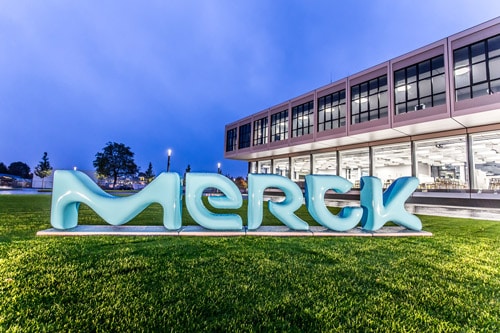
Rising costs related to the development of immuno-oncology drug avelumab ate into Merck KGaA’s operating profit in the fourth quarter of 2016, and that trend looks set to continue through 2017.
Pfizer-partnered avelumab is central to Merck’s plans to revitalise its healthcare business, currently under pressure as top-selling Rebif (interferon beta-1a) – an injectable treatment for multiple sclerosis – tries to fend off competition from newer, oral MS therapies.
Anti-PDL1 drug avelumab is under priority review in the US for lead indications bladder cancer and Merkel cell carcinoma. Analysts have predicted sales of around $600m in 2020, assuming approvals later this this year, and rising to $4bn-plus at peak – despite playing catch-up with rival PD-1/PD-L1 inhibitors from Bristol-Myers Squibb, Merck & Co/MSD and Roche.
For now, Rebif is holding up remarkable well, with sales slipping just €100m to €1.7bn last year, and its resilience helped Merck post healthcare sales of €6.85bn, down 1% on the prior year, although profit slipped 5% to €497m.
Volumes were down in Europe but price hikes in the US helped buoy the product, said Merck. The MS drug is expected to face further challenges this year however if Roche’s much-anticipated MS drug Ocrevus (ocrelizumab) – which outperformed Rebif in two phase III trials – clears the FDA later this month.
Avelumab and other pipeline candidates such as oral MS therapy cladribine have assumed even more importance for Merck since it abandoned plans to seek approval of evofosfamide in advanced soft tissue sarcoma and pancreatic cancer after phase III study failures.
The company said recently that it expects to see €2bn in revenuefrom new launches between 2017 and 2022, with a new product or indication launch every year.
For 2017 Merck is predicting “slight organic growth” in its healthcare division, with continued declines for Rebif and a high single-digit decline in profit thanks in part to higher R&D investments.
Overall sales at the group rose 17% to just over €15bn, thanks to largely to the expansion of its laboratory and life sciences division that was swelled by the recent acquisition of Sigma-Aldrich.




